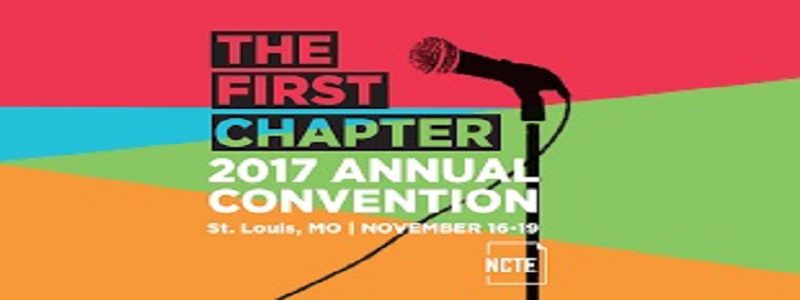NEWS
ACE Presenting at the 2017 NCTE Annual Convention
Argument-Centered Education was invited to present at the 2017 Annual Convention of the National Council of Teachers of English (NCTE), and we will be presenting as part of a panel on close reading, literacy instruction, and argumentation. The presentation will take place on Sunday, November 19th, at 12:45pm, in the convention center in St. Louis, Missouri.
We will take this opportunity to introduce to a wider audience a method that we have designed to enable students to apply close reading techniques to the harvesting and gathering of interpretive evidence, leading to the formulation of refined and nuanced interpretive arguments about texts.
Video Clips of Classroom Debates in Spanish (on Beauty) and on Greece (in English)
We wanted to share a small set of video clips we recently gathered from partner schools who this spring implemented argument-centered projects en español on authentic beauty and its relationship to cosmetics, and on the comparative value of ancient Sparta and ancient Athens as models for societies today (in English, for a social studies classroom).
These short clips can give teachers and administrators a further glimpse into argument-centered classrooms, as they engage students in debates on issues that they have researched, studied, organized their ideas about, and built arguments on.
Argument-Based Small-Group Discussions and the Young Adult Novel ‘The Goats’
This is an argument-centered adaptation and iteration of the small group discussions strategy, designed for a middle school English language arts unit on the award-winning young adult novel “The Goats,” written by Brock Cole in 1987.
Overview
Our students can often best make meaning from an extended text through discussions with their peers. Through the social engagement of these discussions, middle and high school students can clarify, organize, and deepen their thinking about a literary work, and become closer in their relationship to the text and to the act of reading, analyzing, and interpreting literature.
Argumentalizing these small-group discussions can enhance their academic impact, and at the same time give students a more vigorous cognitive and communicative experience using this fundamental classroom routine. We can argumentalize small-group discussions in several familiar ways.
The Atomic Bombing of Japan, Document-Based Debates, and Close Evaluation of a Flow Sheet Model
This is a comprehensive argument-centered mini-unit on the United States’ decision to use atomic bombs against Japan at the end of World War II. Students study this momentous decision and its consequences through videos, primary documents, and analytical essays. They use these sources to formulate and build out arguments on the fundamental and enduring debatable question:
Was the United States justified in using atomic bombs against Japan in World War II?
Simultaneous table debates take place on this issue across the classroom. These debates are followed up with a focus on the academic means and methods that are used to evaluate competing arguments on a complex, rooted, significant controversy such as the historical question that envelopes America’s use of atomic weapons in WWII. Students conduct one-on-one argument evaluation, using a model debate flow sheet. Then they conclude the mini-unit by evaluating the argumentation in a fully modeled debate and its tracking form.
Respondent & Rejoinder: Research Paper Presentations with a Critical Component
A justly popular way to cap a research paper unit is to have students present their discoveries and their arguments to their peers. Some of our partner schools, though, have wanted to do more than offer students an opportunity to exercise and demonstrate their communication and presentation skills; so we have worked with them to incorporate a final critical component, modeled on an academic conference paper presentation, respondent comments, and rejoinder.
The Respondent and Rejoinder Activity complements and culminates the argumentation the students do in their extended research and writing project. Results so far have been salutary: students think harder when presenting, and use their research to engage in inquiry and argument that is social.






